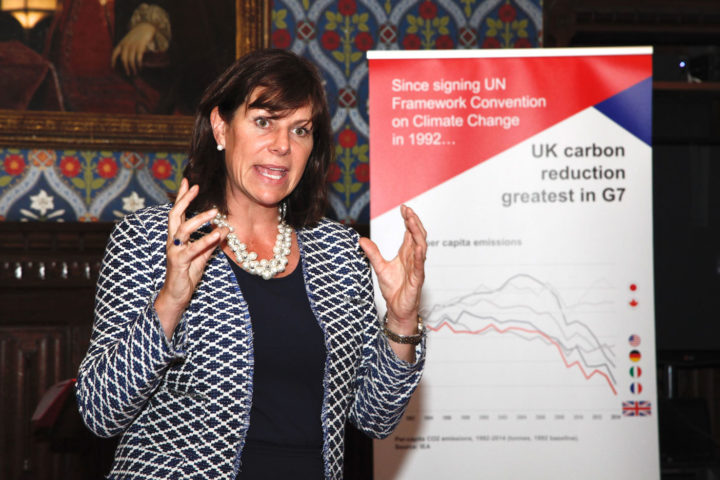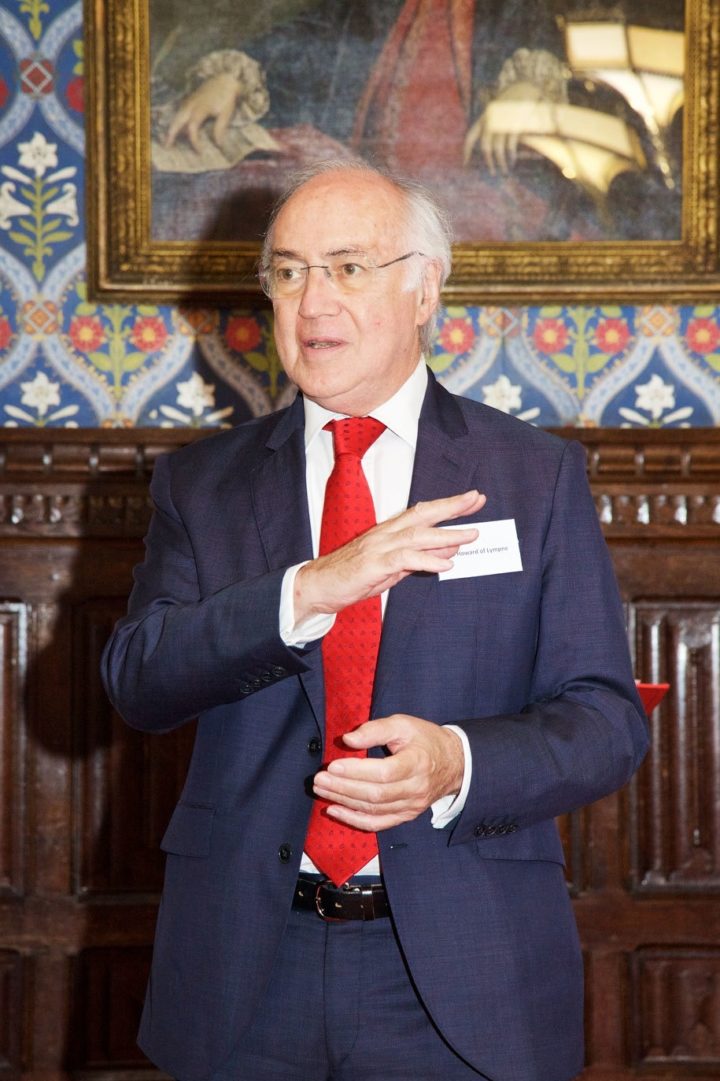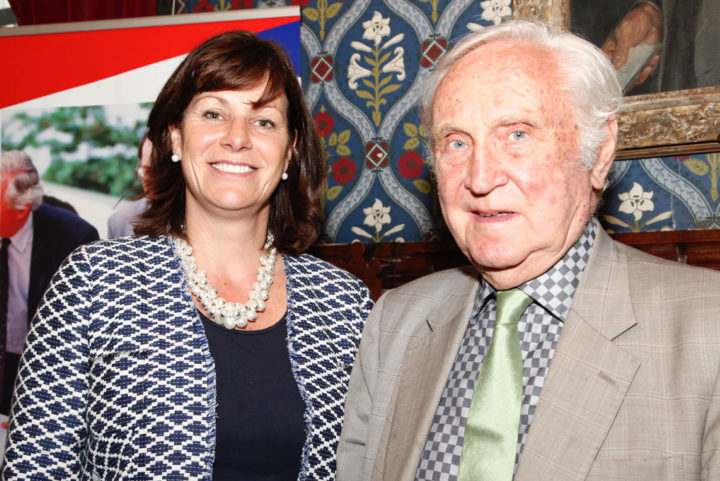Conservatives back stronger action on climate change
MPs hear of Conservative legacy on tackling climate change at Parliamentary event
By George Smeeton
Share
Last updated:
While no-one in the country can be sure exactly what people voted for in the recent General Election, one of the more interesting themes to emerge since has been the growing number of Conservative voices calling for stronger action on climate change.
New BEIS Minister Claire Perry MP has raised expectations for the Clean Growth Plan – now due to be published after summer recess – with comments that she hopes it is “as ambitious, robust and clear blueprint as it can be”. Leading Brexiteer and new Secretary of State for the Environment Michael Gove has been clear that he sees quitting the European Union as an opportunity to strengthen existing environmental protections.

The Government even followed Donald Trump’s announcement that he would withdraw from the Paris deal with a line in the Queen’s Speech reaffirming the UK’s commitment to the Agreement.
25 years on from Rio
While warm words of support could be expected from ministers, new backbenchers are also making themselves heard. In advance of a recent event in the House of Commons celebrating 25 years of Conservative leadership on climate change hosted by Lord Howard and Richard Benyon, new MP Simon Clarke wrote a piece heralding the opportunities of emerging technologies such as electric vehicles and carbon capture and storage (CCS), and celebrating the Conservative tradition of environmental stewardship.

Lord Howard’s event marked a quarter of a century of the United Nations Framework Convention on Climate Change, which he as Environment Secretary and Sir John Major as Prime Minister signed for the UK at the Rio Earth Summit.
That this has been a UK success story is unarguable – as our report earlier this year showed, on a per-capita basis the UK economy has grown faster than any other in the G7 group, while our emissions have come down further than any in the G7. The report also contests the idea that the UK has cut its emissions at home by “exporting” them. On a per-capita basis, “imported” emissions are now almost exactly the same as in 1997, even though UK per-capita GDP has more than doubled in that period.
The Committee on Climate Change, in its recent Progress Report to Parliament, picked up the theme. Although its precise calculations differ from ours, its overall message is the same: GDP up 60% since 1990, emissions down 42%.
So, while some in the Parliamentary Conservative Party have been heard to claim that tackling climate change would bring significant economic harm, real-world evidence is showing quite conclusively that they are wrong.
Conservative leadership
The event itself was astonishing cross-generational, attended by Conservative parliamentarians from 2017 freshers such as Mr Clarke, through established MPs such as James Gray and Julian Lewis, to Sir Crispin Tickell, Lady Thatcher’s advisor in the late 1980s when she delivered her famous speech to the United Nations General Assembly arguing for a global treaty on climate change. It felt as though the Conservative movement is engaging with the issues in a way perhaps not seen since David Cameron’s husky trip, and arguably on a more bottom-up basis.

And the overall takeaway – GDP up, emissions down – has clearly been noted in Government, with Ms Perry remarking on it during her speech at the event.
This matters, given the energy, climate, and broader environmental issues facing Parliament over the coming months. Some are quite detailed, and there are likely to be several issues where the overall imperatives of Brexit run up against pragmatic self-interest. The row about continuing British membership of Euratom is the first, but could be a harbinger of many more to come. One important issue will be the UK’s future relationship with the EU’s internal energy market – while close links would aid energy security and reduce bills, just how close it can be is at present an open question.
There are also issues beyond Brexit that the Government will be forced to confront in the coming months and years. As ministers attempt to meet their ambitions on the rollout of electric vehicles, and deliver whatever is in the Clean Growth Plan, it will need cash to meet its goals. A vocal backbench caucus could persuade the Government to put its money where its mouth is; boosting investment for popular projects like EV chargepoints or offshore wind.
Popular support
Conservative focus on these issues makes sense given the context of the election result. Recent work by centre-right think tank Bright Blue has shown the popularity of climate change action, and as Conservatives look to win the votes of younger, more liberal voters, it seems clear that they will need a good offer on energy and climate.
As we move closer to the publication of the Clean Growth Plan, and indeed closer to the next election, don’t be surprised to hear more and more vocal support for climate change action from the Conservative side of the House – although the Opposition benches are unlikely to be quiet on the matter either.
And one of the arguments underpinning their support is likely to be that which our report and, more importantly, the Committee on Climate Change have advanced: in the last 25 years we have grown our economy significantly while reducing our emissions, and this should give ministers confidence as they enact policies for the next 25 years.
Share